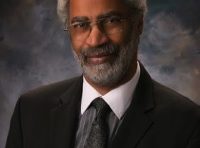Commentary: Civility Requires Seeking Out the Truth
- Share
- Tweet
- Pin
- Share
 by Orlaine I. Gabert, Door County Civility Project
by Orlaine I. Gabert, Door County Civility Project
Civility really begins with each of us choosing that course of action. The Door County Civility Project has provided each of us with nine communication tools based on Choosing Civility by P.M. Forni. These tools are Pay Attention, Listen, Be Inclusive, Don’t Gossip, Show Respect, Be Agreeable, Apologize, Give Constructive Comments, Take Responsibility.
We have spoken to many public and private organizations and businesses to help them better understand each of these tools. Many of these have chosen to place posters naming these tools in their windows or on their walls as a reminder to their employees and the public that civility is spoken here. There are also wallet size tools cards so you can carry them around as a helpful reminder to yourself.
As the steering committee continues to promote civility in our community, we have learned more about what is needed to remain civil. For instance, determining what is “truth.” As usual I first went to my old dictionary and then the internet. My dictionary has two definitions. The first is “honesty, constancy, the body of real things, events, facts, actuality” and the second is, “judgment, proposition, or idea that is true or accepted true.”
On the internet I found the following definition of truth: “that which is true or in accordance with fact or reality, a fact or belief that is accepted as true.” On figuring out the difference between truth and fact, I found the following statement: “Fact is something that cannot be combated with reason, for it is logic itself. But truth is something which depends on a person’s perspective and experience.”
I think most of our experiences growing up have considered that truth is fact. Our parents tell us to always tell the truth. Honesty is the best policy. Courts ask us to swear to tell the whole truth. While I am sure there are truths that are facts, I expect that most the truths we consider facts are in reality our own version of truth.
Let’s just look at a few examples. Is a glass half full or half empty?
Most Wisconsin residents believe the Green Bay Packers are the best professional football team ever, while those in Illinois would say it’s the Chicago Bears.
Often when my sister and I talk about our childhood, we have a very different account of what happened.
Consider how many calls by referees at sporting events have been questioned by fans and coaches. We have different forms of government, religion, frames of reference, preferences, etc. Our own beliefs are truths to us.
I have suggestions to help you seek factual truth and better understand when “truth” is someone’s personal perspective. This will not be an easy task as it needs to be a constant vigil in all areas of your life. Seeking the truth will assist you in using the tools of civility at all times.
As we are shortly approaching another national election and are constantly being bombarded by all kinds of statements about the candidates, I know it is very confusing to determine what is factual truth and what is prospective truth.
First, you need to review your opinions, attitudes and beliefs; where these come from; and determine if any are factual. This scrutiny will help you determine which political mind you are. Still, the candidates of each party need to be researched to have an accurate description of their background, which helps you to understand their perspective and how they will do their job serving all the people.
Now comes the hard part, trying to make any sense out of the massive contradictory information we are receiving. It is so important to remember that many of the messages we see every day are not from the candidates but special interest groups. The name of the group appears at the end of the advertisement. You need to get the name and research the group’s agenda. Further, you have to extract was is true and what is partially so because relevant facts have been left out. A fact may be stated but then speculations are made of what that statement means, which is not factual. Claims of accomplishment need to be checked for accuracy as well as the accusations that candidates make about the other. Lastly, in prospective truth, extreme statements are usually falsehoods.
Once you have a better sense of the factual truth and prospective truth, you can better understand what truths the candidate will use to make decisions. This will help you choose for whom you will cast your vote.
Please take these steps and then cast your vote for every election. In doing so, civility will continue to grow.

